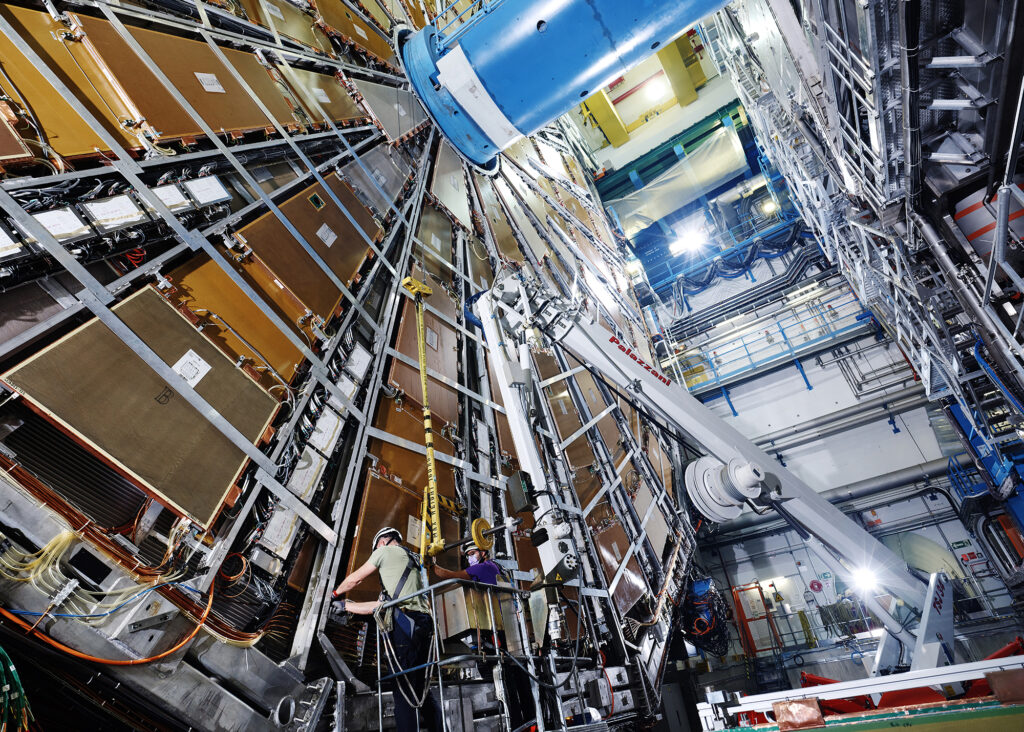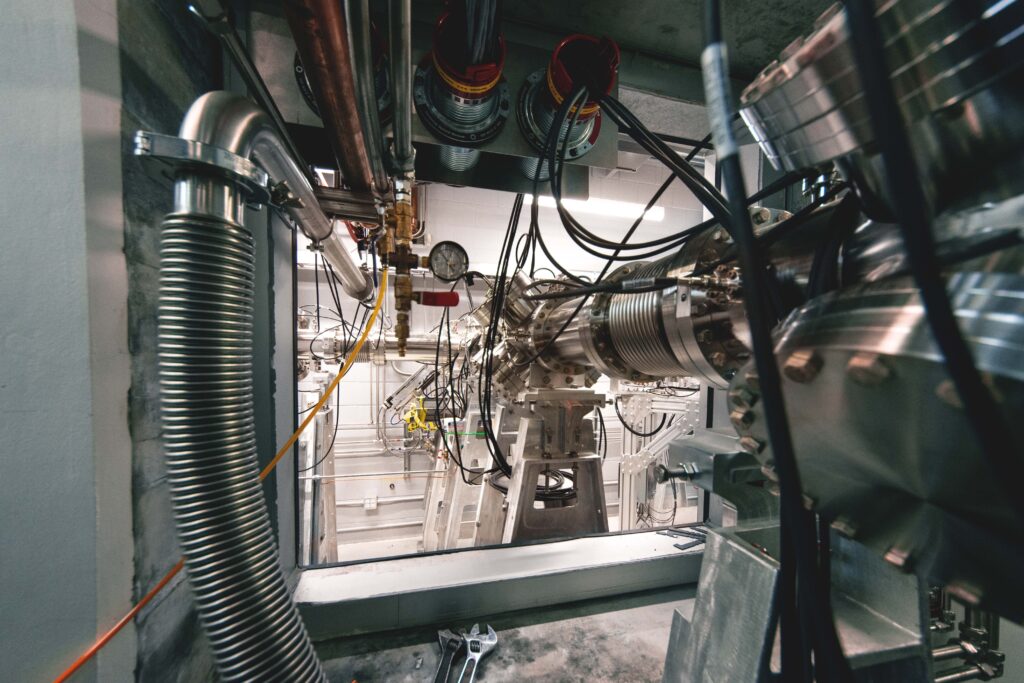
Scientific Computing
TRIUMF’s Scientific Computing team brings critical technical and computing capacity to a variety of ‘Big Science’ initiatives within TRIUMF-partnered laboratories and experiments across the globe. From large-scale global computing for the Large Hadron Collider to optimizing health outcomes using machine-learning and generative AI, TRIUMF’s Scientific Computing teams are helping revolutionize our approach to solving some of the most challenging questions in science, medicine, and beyond.
The Scientific Computing team at TRIUMF comprises:
- The Data Science and Quantum Computing Group
- The computing subgroup of TRIUMF’s ATLAS group, which manages the TRIUMF-SFU ATLAS Tier-1 Data Centre.
research Feature
Canadian Science on the World Stage
TRIUMF is Canada’s portal to international ‘Big Science’ experiments.
We lead Canada’s contributions to the world’s largest science experiment, the Large Hadron Collider and its two detectors CMS and ATLAS, which won a Nobel prize for the discovery of the Higgs boson in 2012.
Research Initiatives
Large-Scale Global Computing
As founding members of the Worldwide LHC Computing Grid (WLCG), TRIUMF’s Scientific Computing teams are helping some of the world’s most advanced ‘Big Science’ experiments collect, share, and analyze data from particle collisions as part of a massive, integrated, global computing grid.
The Scientific Computing team supports the following large-scale global particle detection and computing initiatives:
- ATLAS Tier-1 Data Centre and global Tier-1 facilities
- The TRIUMF-ATLAS Group
Beam transport tuning and prognostics
The Scientific Computing team collaborates with accelerator and beam delivery researchers to optimize the transport and delivery of TRIUMF’s particle beams; improve the science outcomes of the various experiments and facilities that the beams arrive to; and advance the development of a greener facility.
This work comprises:
- Analysis of historical and on-line diagnostic and beam-steering data from accelerators, as well as from the vast array of other beam delivery-related devices (power supplies, turbopumps, etc.)
- Design of automatized tuning systems to predict failure points and cadence
Machine Learning & Quantum Information Systems
-
Leveraging machine learning and quantum computing techniques, the Scientific Computing team is enhancing science outcomes for a variety of major global science initiatives and local projects, as well as supporting Canada’s National Quantum Strategy in the areas of quantum sensors, materials, and computing.
Ongoing projects include:
- Advancing our understanding of how targeted radioisotope-based therapies like actinium-225 (the ‘Rarest Drug‘) affect the human body, by better characterizing the amount of cancer-killing radiation delivered.
- Improving researchers’ ability to hunt for very rare particle decays as part of the NA62 experiment by developing models that better suppress background signals
- Developing deep learning techniques for particle identification and multi-ring event reconstruction in the water Cherenkov detector of the Hyper-K experiment.



